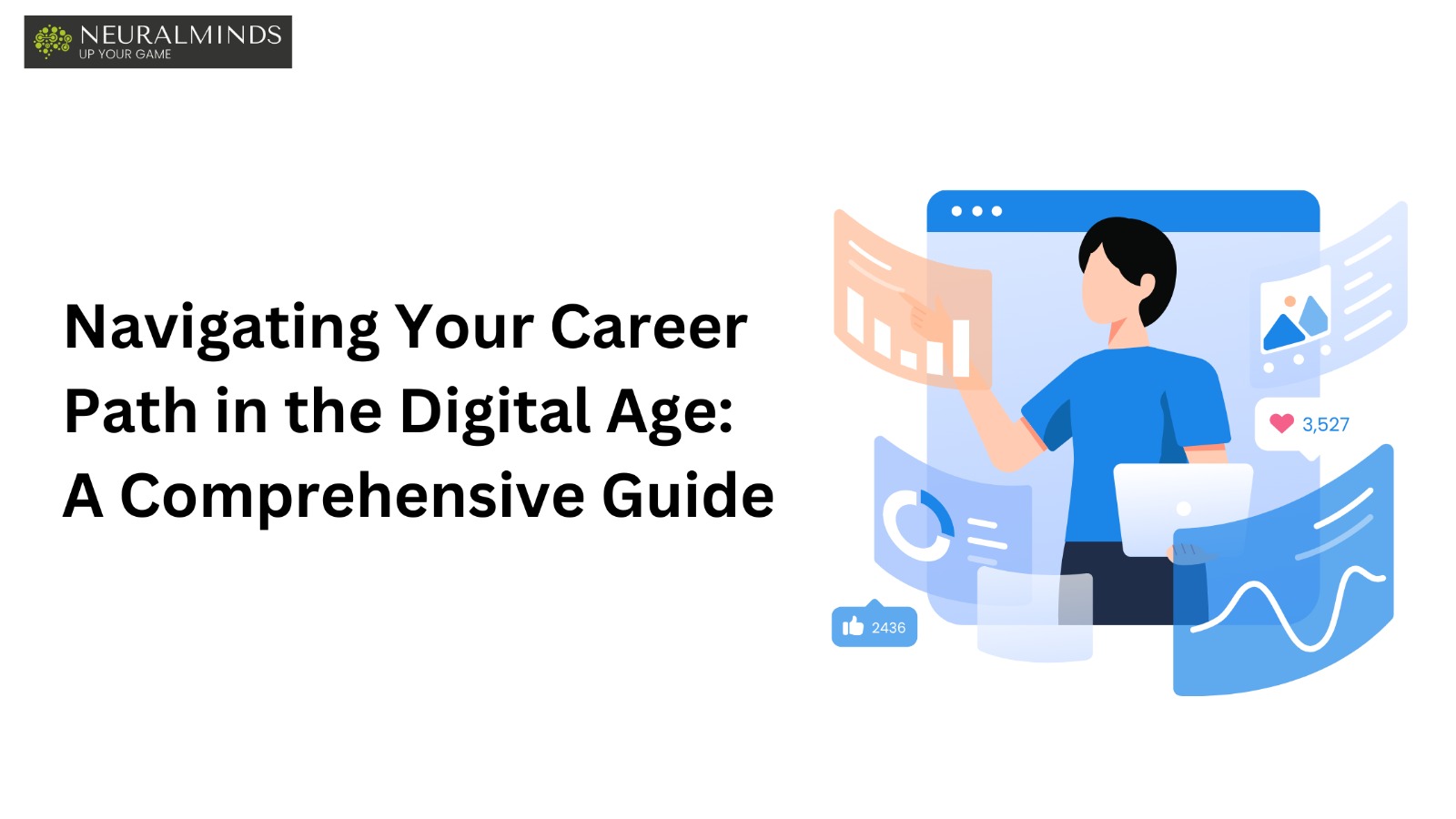In the ever-evolving landscape of the digital age, the career paths available to professionals are more diverse and dynamic than ever before. The rise of technology and the internet has not only transformed the way we work but also how we think about our careers. This guide explores the key strategies and insights for successfully navigating your career path in this digital era, ensuring you make informed decisions that align with your goals, skills, and passions.
Understanding the Digital Career Landscape
The digital age has ushered in a new era of job opportunities, from digital marketing and data analysis to software development and remote work opportunities. Understanding the vast landscape is the first step in navigating your career path. It’s essential to stay informed about emerging trends and technologies, as these can significantly impact your career choices and growth opportunities. Continuous learning and adaptability are your best tools for staying relevant in a rapidly changing job market.
Identifying Your Career Goals and Values
Before diving into the digital career world, it’s crucial to have a clear understanding of your career goals and values. What are you passionate about? What type of work environment do you thrive in? Do you value flexibility over stability, or is it the other way around? Answering these questions can help you identify the career paths that align with your personal and professional aspirations. Setting SMART (Specific, Measurable, Achievable, Relevant, Time-bound) goals can also provide a clear roadmap for your career journey.
Building a Strong Digital Skillset
In the digital age, having a robust set of digital skills is non-negotiable. Whether you’re aiming for a career in tech or in a more traditional field, digital literacy is essential. Skills like coding, digital marketing, data analytics, and even basic knowledge of AI and machine learning can set you apart from the competition. Fortunately, there are numerous resources available for skill development, from online courses and bootcamps to webinars and workshops. Investing time and resources into learning and updating your skillset is an investment in your career longevity.
Leveraging Networking and Social Media
Networking has always been a key element of career development, but in the digital age, its forms and platforms have evolved. Social media platforms like LinkedIn, Twitter, and even Instagram can be powerful tools for connecting with industry professionals, finding mentors, and discovering job opportunities. Creating a strong online presence can also attract potential employers or clients. Engage actively with your network by sharing your achievements, insights, and professional updates. Remember, networking is about building genuine relationships rather than just collecting contacts.
Embracing Remote Work and Flexibility
The digital age has made remote work more accessible and acceptable, offering unprecedented flexibility in how, when, and where we work. This shift has opened up a global job market, allowing professionals to explore opportunities beyond their geographical boundaries. To thrive in a remote or flexible work environment, it’s important to develop strong time management, communication, and self-discipline skills. Additionally, understanding and leveraging digital collaboration tools can enhance your productivity and effectiveness in a remote setting.
Adapting to Change and Overcoming Challenges
Adaptability is perhaps the most critical skill in the digital age. The ability to pivot and embrace change is essential for career growth and resilience. This might mean changing career paths, learning new technologies, or even facing job displacement due to automation. It’s important to view these challenges as opportunities for growth and learning. Cultivating a growth mindset can help you remain optimistic and proactive in the face of change.
Staying Ahead with Continuous Professional Development
In an era where technological advancements are constant, continuous professional development (CPD) has become crucial for career advancement and sustainability. CPD involves actively pursuing new knowledge, skills, and experiences that contribute to your professional growth. This can include attending industry conferences, participating in workshops, pursuing further education, or obtaining certifications relevant to your field. The key is to remain curious and committed to learning.
Engaging in CPD not only enhances your current skill set but also prepares you for future industry shifts, ensuring that you remain competitive in the job market. It also signals to employers your dedication to your career and your proactive approach to professional growth. To integrate CPD effectively into your career path, set aside regular time for learning, prioritize areas with the highest return on investment, and seek opportunities that align with your long-term career objectives. Remember, in the digital age, the learners and adaptors are the ones who thrive.
Planning for Long-Term Success
Finally, planning for long-term success involves continuous self-reflection and strategy adjustment. The digital landscape is continually evolving, and so should your career plans. Regularly reassess your goals, skills, and the market to ensure you’re on the right path. Don’t be afraid to take calculated risks or to step out of your comfort zone. Remember, career development is a marathon, not a sprint. It requires patience, persistence, and a willingness to grow.
In conclusion, navigating your career path in the digital age is both an exciting opportunity and a challenging endeavor. By understanding the digital landscape, identifying your goals, building a strong skillset, leveraging your network, embracing flexibility, adapting to change, and planning for the long-term, you can successfully chart a course through this dynamic career environment. The future of work is digital, and by preparing yourself today, you can ensure a thriving and fulfilling career tomorrow.

